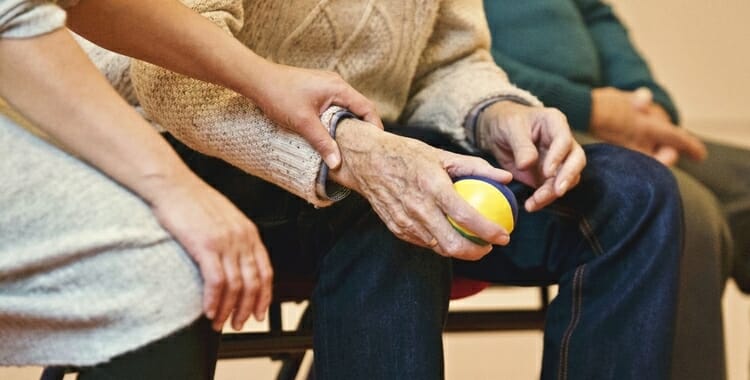Do Montessori Techniques Help Elders with Dementia?
As an increasing number of people fall prey to Alzheimer’s, the struggle to find not only a cure, but a way to manage the symptoms becomes more urgent. One possibility lies in a method typically used in an educational setting. The Montessori method was developed about a hundred years ago as a way of educating children. In recent years, it has been applied to the treatment of Alzheimer’s, with some promising results.
Good News for Families and Friends of Alzheimer’s Patients
A 2006 study by the D.C. Office on Aging concluded that Montessori methods were “a promising and useful tool among the many tools that adult day centers have to engage their participants and improve their behavior and mood.” The research shows that engagement with others, ability to negotiate more difficult tasks, and a willingness to be helpful to others all increased with participation in a Montessori-based Alzheimer’s program.
This type of treatment for dementia is promising news, especially for those with loved ones in nursing homes. When a resident has Alzheimer’s he or she may be more at risk for abuse because their ability to communicate harmful treatment is hampered. If you have a loved one with dementia in a nursing home, consider asking if there are Montessori methods available. As always should be the case with a loved one under professional care, it’s important to ensure they get quality treatment. If you suspect your loved one has suffered abuse in a nursing home, contact the experienced, compassionate attorneys at Khalidi Law Firm.
What Are Montessori Methods?
The Montessori approach, named after Maria Montessori, was developed to teach young children in schools. The foundation of this method to teach a child is to first observe his or her interests and capabilities. After making note of these tendencies, a teacher can use them as a springboard to develop the content and approach of lessons.
The Montessori method works by creating little tasks for a child that will push his or her capabilities just a little bit outside of their comfort zone. This way, the child is continually challenged, but never enough that he or she will want to give up and quit.
Montessori teaching also relies heavily on being able to stimulate a student’s senses. The idea here is that the more a lesson stimulates the senses, the more a student will be engaged with the lesson, and the more the lesson will remain in the student’s long-term memory. This sense-based part of the Montessori method is especially important when applying the method to Alzheimer’s treatment.
How Montessori Methods Apply to Alzheimer’s
The Montessori method is applied to Alzheimer’s treatment, in part, by trying to engage the types of memory that are not affected by dementia. These include motor-memory tasks, such as how to dress, how to eat, and how to do a number of other once-familiar tasks. The guiding principle here is that nurses and other nursing home personnel should not do anything for the patient that he or she can still do for himself.
A few of the other ways the Montessori techniques can be put into practice include the use of cognitive games, such as puzzles and sorting exercises. Formerly familiar tasks, like folding towels or matching socks, can help exercise the cognitive ability to sort. Completing tasks also gives the patient a feeling of accomplishment and control. Providing opportunity to perform other, familiar tasks is also important. When this can be accomplished in a nursing home setting, a person with dementia has a chance to improve. For patients who like cooking, a safe kitchen environment can be a good place to exercise the Montessori method.
Do You Have Concerns about a Loved One in a Nursing Home?
Let us help you determine if an injury suffered by a loved one in a nursing home or other assisted living facility may be a legal case. The Khalidi Law Firm has more than 20 years of experience helping injured persons in the Tucson area get the closure they deserve. If you have suffered injury or lost a loved one, our nursing home abuse lawyers can help.




